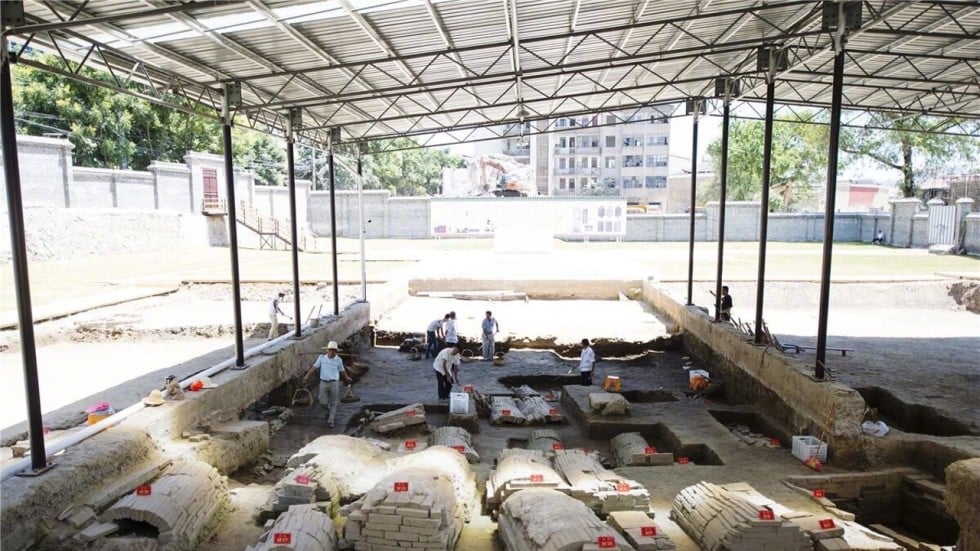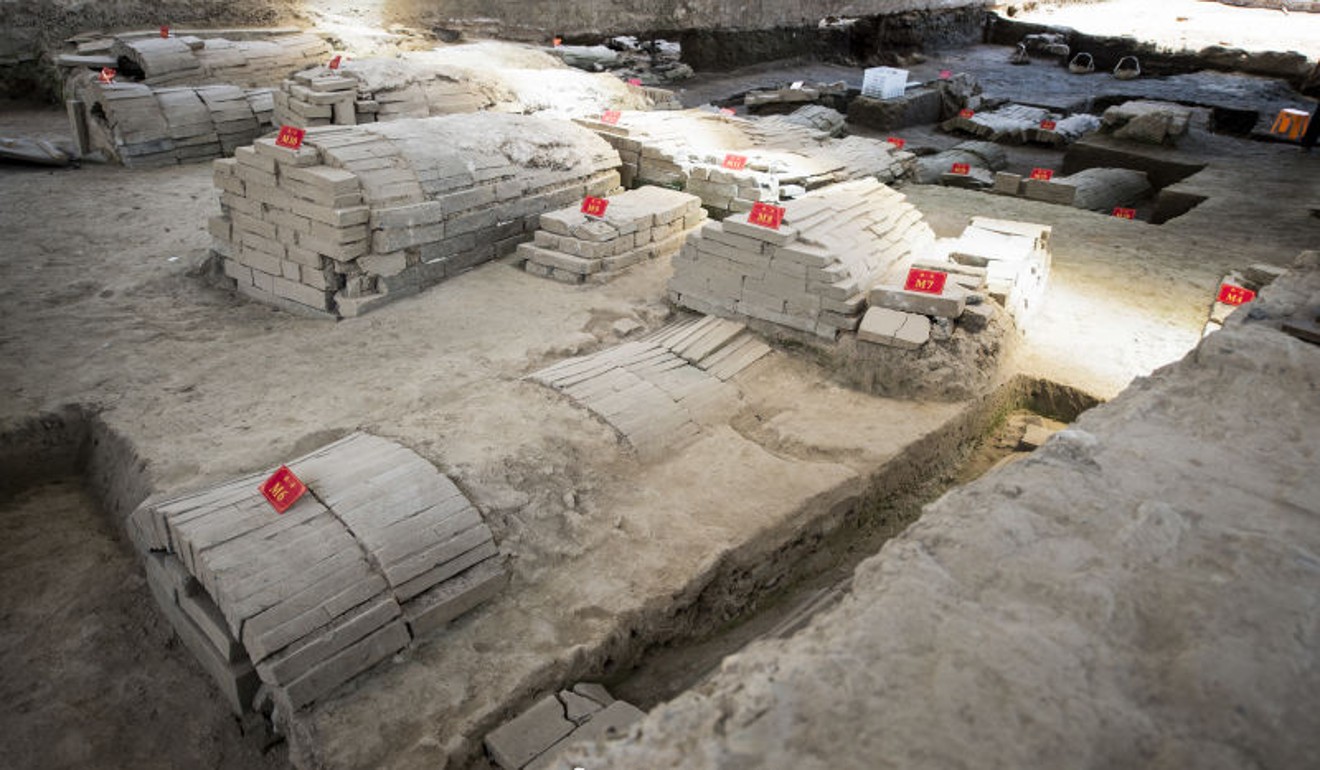Source: SCMP (8/30/17)
Family graveyard of ‘China’s Shakespeare’ rediscovered
Traces of the family plot of playwright Tang Xianzu were largely destroyed during the Cultural Revolution, according to newspaper report
By Wendy Wu

Archaeologists at work in the graveyard. Photo: Handout
The remains of the family graveyard of Tang Xianzu, a famous Chinese playwright who lived more than 400 years ago, have been rediscovered after it was largely destroyed during the social upheavals of the Cultural Revolution, according to a newspaper report.
Archaeologists found traces of the family plot in Fuzhou in Jiangxi province, The Beijing News reported.
The major plays written by Tang, who has been dubbed “China’s Shakespeare” by some critics, are known as the Four Dreams. They include the work The Peony Pavilion, which is still regularly performed in China.
The cultural relics and archaeology department in Jiangxi has discovered 40 tombs in the Tang plot in excavations since May and one of them was identified as the probable site of the playwright’s burial. It was particularly badly damaged.

Remains of some of the graves found. Photo: Handout
The graveyard was attacked by Red Guards in 1966 at the start of the Cultural Revolution when symbols of China’s ancient culture and customs were frequently targeted. Most of the tombs were largely destroyed with only cracked bricks remaining, according to the report.
Archaeologists did find six epitaphs honouring the dead, one of which was written by Tang about his grandmother. The epitaphs will be released to the public for research in the coming two months, the report said.
Fuzhou, Tang’s hometown, has several buildings which honour one of China’s greatest playwrights. The city will seek experts’ opinions on how to present the graveyard to the public in the future, according to the article.